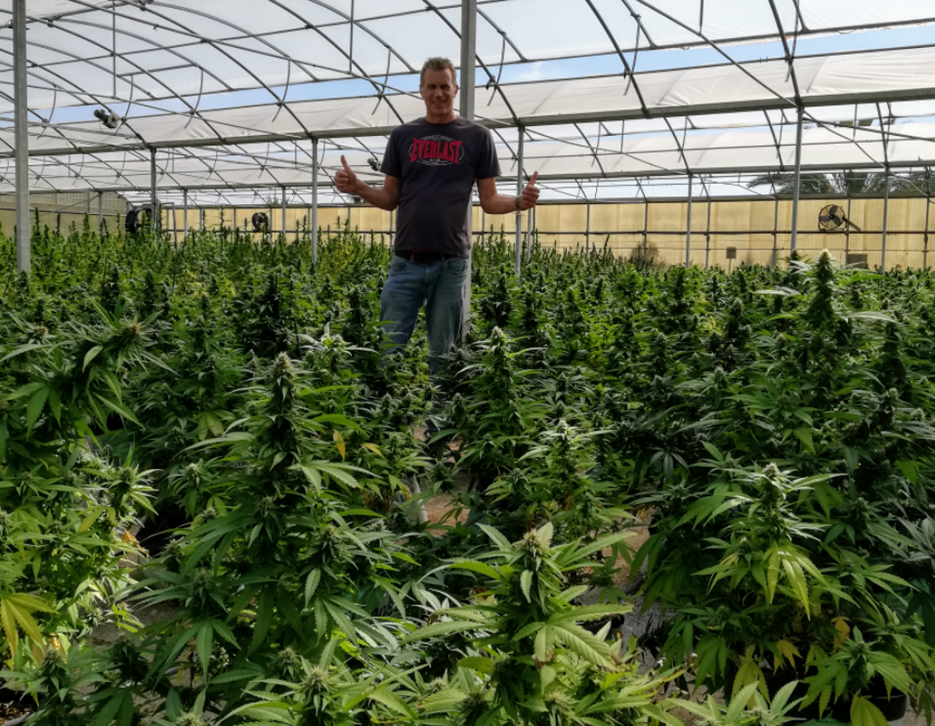Why does a plant need nutrition?
The basic elements a plant needs to live and grow are water, light and CO2, the three elements that play an important role in photosynthesis. So as a good plant parent, make sure you have enough water and light for your plants. But in addition, your plant also uses all the minerals that are in the soil. With its roots, a plant pulls them out of the potting soil. These minerals support your plant's growth and all have a different purpose; some provide flower development, others stem firmness or green leaf color.
The three most important elements in plant nutrition are nitrogen (N), phosphorus (P) and potassium (K). In addition, there are often additional supporting elements in plant nutrition, such as magnesium and calcium. All these substances have a different purpose and if something is missing, it acts against the growth and health of the plant.
In nature, this nutrient is constantly replenished: leaves that fall to the ground are digested and converted into substances that the roots in turn can absorb. This does not happen in your home, because potting soil does not have such a rich soil life and fallen leaves are usually removed. So you have to make sure in another way that the plant is still getting enough nutrients, and that can be done with plant nutrition.
How do you recognize when a plant has too little nutrition?
A nutrient deficiency can become visible in several ways. One of the first signs is that your plant is no longer growing well, while it is growing. So if you have a plant that doesn't grow year-round, even during the spring and summer, there may be too few nutrients in the soil. But your plant may also discolor, in which case the leaves will turn yellow or brown. Sometimes new growth will be misshapen due to lack of nutrients, or the new growth will remain very small. Lack of nutrition can also cause the plant to have too little energy to start flowering. In more extreme cases, the plant may drop its leaves. If you are sure that you give enough water and the plant also gets adequate light, but still the leaves drop, then the cause is usually lack of nutrition. Your plant can become less hardy due to lack of nutrients and is therefore more susceptible to infections and bugs. In short: your plant can become a bit pathetic. Fortunately, a plant can often recover from this, and plant nutrition acts as an extra shot of vitamins that make the plant feel like new.
Note that if you have just repotted a plant, it does not need any extra nutrition for the first time. There is also plant nutrition in fresh potting soil. How long this lasts is indicated on the potting soil package. Only then do you give your plant extra nutrition.
What plant nutrition should I give my plants?
There are different types of plant nutrition, initial nutrition for cuttings and seedlings for root development and new internodes, growth nutrition for the growth phase, flowering nutrition for flowers and stimulation to improve flower results. But since not all plants grow at the same rate, they do not all need the same amount of nutrition. For example, a slow cactus can do with much less than a fast banana. Using soluble powdered nutrition, you can give a little more or a little less nutrition to specific plants to ensure optimal nutrition. For example, I give cacti and succulents a quarter of the recommended amount and a banana the maximum amount. For medicinal plants with thc and/or cbd I stick to the indicated growing schedules. It is advisable to add nutrition to these plants every 2 waterings, this way the substrate (soil) and plants stay easy to control and productive for longer periods of time.
Will your plant die if you don't add plant nutrition?
You may be wondering how important plant nutrition is, you may never give your plants nutrition and your plants will be fine anyway. that's a good thing! Your plant won't die as quickly if you don't give the plant nutrition. However, it is much more likely that the leaves will turn yellow and fall off and your plant will not grow and flower as well as it should. Susceptibility to vermin is also increased. With plant nutrition you are therefore assured of a beautiful and healthy plant whose leaves develop well and new growth will appear, new flowers will develop and give you good crops.
Can you overfeed your plant?
You can certainly overfeed your plants and that can be harmful. An overdose of plant nutrition can damage the roots of your plant. That's why you should never give more than what is indicated on the package, and you certainly shouldn't give an extra dose if you've forgotten once.
A normal dose of nutrition gives the best results.
Nutrition for happy plants
So if you want to give your plants the best care possible, don't forget to give them some nutrition too! Plant nutrition ensures that your plant is hardy, develops new growth and simply looks much better. Never give more than what the package recommends. This ensures beautiful, healthy plants that will give you everything you expect from them!



